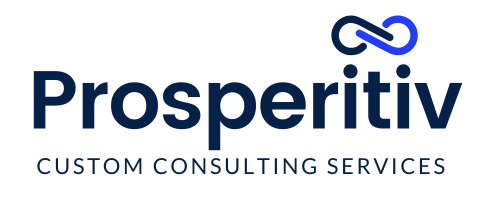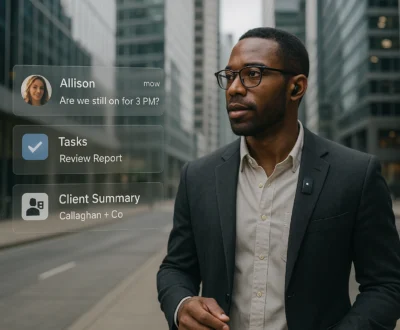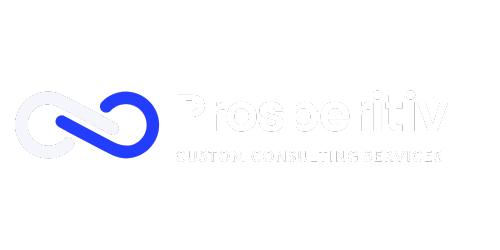
A common question many eCommerce marketers ask is: "How can I improve ROI from my SEO efforts?"
Well, the truth is there is no specific SEO tactic that works all the time so it comes down to testing multiple tactics. Doing this can greatly increase the likelihood of having a positive impact as the combination has a compounding effect.
Finding different ways to improve the quality of your website SEO is a marketing benchmark brands should continuously work on. Remember, SEO is not an overnight miracle solution to generate more leads but rather a medium to long-term investment. With that in mind, let's take a closer look at some best SEO practices for eCommerce success.
Implement A Strategic Content Marketing Strategy
eCommerce brands should start taking strategic content marketing more seriously. All too often, companies waste time and money on content creation by mostly guessing what topics will drive results. You are better off following a strategic approach as it will yield a much-improved ROI.
The good news is that if you are already creating blogs, making videos and writing informative articles, you are halfway there. As you continue publishing better content, you will gain more results from Google searches.
At the same time, the other pages you link to in your content and your entire site will also share increased authority. What does this mean for your eCommerce business? Well, your product and category pages will rank better and generate more sales when linking to them from your best content pieces.
Place Good Copy On Product And Category Pages
Adding quality, unique content to your product and category pages will not only help you rank higher on Google but it will also increase click-through rates and improve conversions. Most eCommerce pages tend to be product and category pages but many companies don’t have much (if any) content on there.
They often only contain short lines of descriptions or copied content from the original product’s manufacturer’s website. This means those pages will have thin or duplicate content which results in lower search engine rankings.
So how can you improve your eCommerce product and category pages?
Google has a set of guidelines outlining various aspects of a website’s overall quality. To rank your eCommerce pages higher, keep the following in mind:
- Make sure your pages have higher relative quality content than your competitors
- If you have thin content, Google sees this as a signal that they are not of particularly high value
- Create content that is unique to your website
- Don’t copy and paste content from another website as this could lead to a penalty for duplicate content
There are ways to significantly improve your eCommerce SEO by performing keyword research and adding good copy to your pages. You can use a variety of SEO tools but SEMrush, Ahrefs, or Moz are three of the most common. Perform keyword research for each page to find the best keywords. From there, add at least 150 words of copy but remember to include those keywords.
Optimise Your Content For Long-Tail Keywords
A big misconception many business owners have about SEO is that they should choose high-volume keywords. If you only go after specific keywords with the highest search volume, you will be wasting time and valuable resources.
Whilst this approach does work (sometimes), it usually requires you to outspend the competition. Even if it works, the time it takes to start ranking for those top keywords vary significantly and could take ages.
Without getting into too technical details, allow us to clarify things somewhat by focusing on the approach that works today – ranking for long-tail keywords.
Why Should I Use Long-Tail Keywords?
Long-tail keywords make up the most searches on the internet and they have the lowest competition. Ranking for long-tail keywords is a strategy that can help increase your eCommerce sales for various reasons, including the following:
- In most cases, there is less competition so you are more likely to rank for long-tail as not many websites are targeting them
- These keywords are less competitive which means smaller investment (lower cost) in link building to their associated content
- They offer a better conversion rate as customers who search for a specific product will use a long-tail target keyword that contains your brand, product name or model, etc.
The long-tail keyword strategy is a better investment as you will more likely rank for many long-tail keywords that can generate loads of relevant traffic. You should also use long-tail keywords in alt text for product images, page title tags, and meta descriptions.
Add Link Building To Your Content Strategy
Link building involves increasing the number of links that go to your website content, whether it’s the home page or product pages. Getting backlinks is not always easy but high-ranking content often naturally produce some backlinks.
You can perform link building in several ways but keep in mind that some are better than others. Here is a great article with some link building strategies that could work for you. Remember, your site authority can be negatively affected if too many low-quality links from questionable websites point to yours.
A strategy we would recommend is leveraging your content into more links by sharing blogs, guides and articles across the digital realm. Use using social media and targeted email marketing to get your content in front of the right people who are likely to link to it.
Perform A Content Audit
By now you may have noticed that these eCommerce SEO best practices build on each other to improve the overall SEO quality of your website. The primary reason for this is that Google consistently updates its algorithm to reward quality.
Low-quality content can negatively impact your authority and underperforming landing pages can lead to a bloated index. A content audit can help identify low-quality pages which can be removed to improve your overall website quality.
When removing old blog pages or underperforming landing pages from a subdomain, for example, you could see a vast improvement with your remaining content. This means an increase in the KPI’s of website traffic, transactions and revenue.
It’s important to perform content audits periodically as part of your Technical SEO process. Have a look at a previous article where we covered 12 On-Page SEO Tips For Higher Rankings.
Fix Crawl Errors And Improve Your Internal Link Structure
Internal links help Google index content around your website as they transfer equity or something we all call “link juice”. Your entire site can be affected if you don’t have enough internal links or if they are broken.
By optimising your internal linking and setting up redirects for broken links, you effectively help prevent crawl errors as Google looks through your website.
A good digital marketing agency will correct these internal errors for you as part of a content and SEO audit. Another important factor is optimising the link anchor text to help the pages rank for a specific target search term.
Clean All External Links
As part of the process when fixing internal links, you should also do an audit for low-quality backlinks to disavow those that may negatively impact your website. Google’s Penguin algorithm update was targeted toward unnatural link building as many sites have spammy backlinks pointing toward them without realising.
You’ll be amazed the difference a link audit can have as cleaning unnatural backlinks along with optimising internal links and fixing crawl errors can lead to a better overall performance of your website’s search engine rankings.
Choose The Right SEO-Friendly eCommerce Platform
As with many things in life, some eCommerce platforms are better than others. You must host your online store on a good platform as it could heavily impact your SEO efforts. The choice of eCommerce platform may depend on the size of your product catalogue and other business goals.
Many customers are unaware of the SEO implications of the platform they are using as some seem to cause bad errors that make it particularly hard for Google to index them. In some cases, migrating to a new platform can help but it’s not a fool-proof plan as other errors could occur.
If you have SEO issues with your eCommerce platform, talk to the technical team or consult a marketing agency. Often, once those errors are corrected, website traffic hits bigger numbers and revenue will also increase.
Ensure Good Site Speed
Site speed is a ranking factor within Google’s algorithm for search results and Google Ads. It’s all about improving the user experience and a fast website will help people find what they are looking for quickly and efficiently.
It involves more than just search engine rankings as potential shoppers will likely not complete their transactions. In terms of SEO ROI for eCommerce, improving your website design and speed will help:
- improve search engine rankings
- generate more traffic
- reduce the bounce rate
- increase conversion rates
Want to check your web page loading times and speed? Simply use Google’s tools including Lighthouse, PageSpeed Insights and the Chrome User Experience Report to see other user behaviour metrics.
Create A Mobile-First Site
Today, having a separate mobile-first site is an essential requirement for SEO success. Google will index mobile websites separately and factor the mobile version of your website into its overall quality. This prioritisation toward mobile sites is referred to as mobile-first indexing.
Having a mobile site can also be another source of revenue as mobile eCommerce sales are projected to make up 54% of all eCommerce sales by 2021. With mobile shopping and eCommerce sales continuing to grow, you need to ensure that customers can find your mobile site and use it seamlessly.
If you need help with your SEO strategy and eCommerce website, contact us through our website or call 01453 542761. You can request a free consultation where we will help find the best strategy for your brand. WSI eMarketing also specialises in content marketing, PPC, social media, email and marketing automation.
Recent Posts
Popular Posts
About us and this blog
We are a digital marketing company with a focus on helping our customers achieve great results across several key areas.
Request a free quote
We offer professional SEO services that help websites increase their organic search score drastically in order to compete for the highest rankings even when it comes to highly competitive keywords.
Subscribe to our newsletter!
More from our blog
See all postsRecent Posts
- The Dark Side of Customer Data Protection: Why Trust Starts With Your CRM January 9, 2026
- Are AI Summaries Killing Your Traffic — or Creating a New Opportunity? September 11, 2025
- Synthetic Intelligence Is Coming. What SMEs Should Know August 29, 2025














